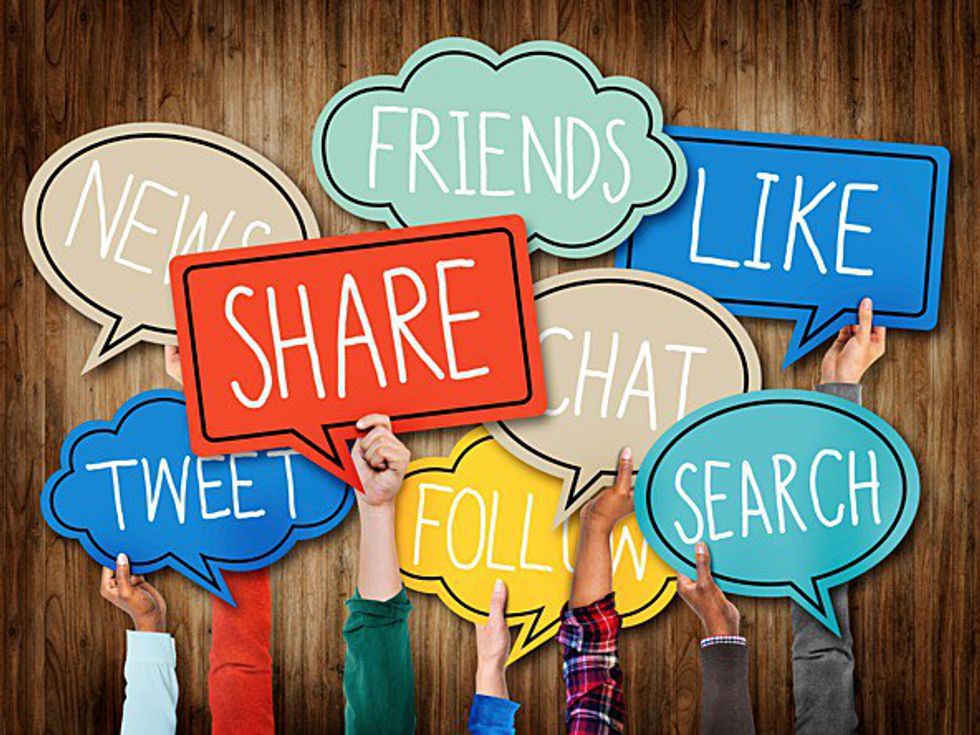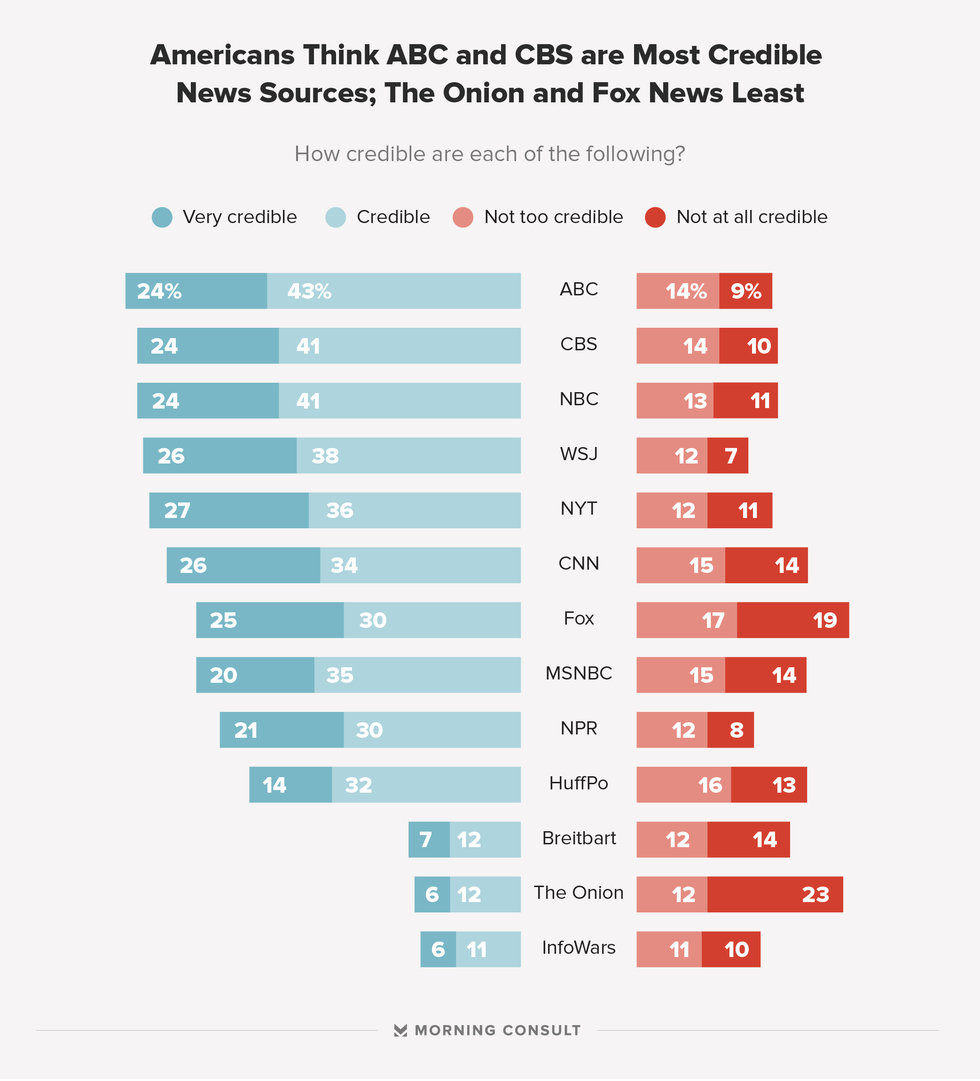In this day and age, people have numerous ways to obtain information on what is happening in the world. Whether it be through your favorite news outlet or through your preferred social media platform, the circulation of information is all around us. The only problem with information being all around us is that some times that information can be misleading.
Let's begin with misleading information on social media platforms. I would say the main social media platforms where you will see misleading information are Twitter and Facebook. These are sites that people of all ages, countries and colors use. Our dear President, Mr. Trump, is an avid Twitter user himself. Anyway... The lovely thing about Twitter and Facebook, or any social media website, is that you are free to voice, or rather type, your opinion on absolutely anything. Knowing that, users talk about what they please. From the latest on celebrities to the most recent political action, "facts" float on the surface of everyone's timelines.
Scrolling down my Facebook and Twitter feeds, I stumble upon a plethora of discrepancies in information. The feeding of misinformation to the public directly relates to the source from where the information is published.
While scrolling on my Facebook feed shortly after the election last November, I clicked on an article entitled, "Bernie Sanders Could Replace Donald Trump Using Secret Loophole."
With such an intriguing headline, how could I have scrolled past this rational and factual-seeming article? It seemed completely realistic! Please tell me you caught my sarcasm there.
The purpose of that headline was to show society that social media users will share an article before they even read it. The article received an obscene amount of shares on Facebook, proving the intellectual laziness of our people. No one could have truly thought that there was a "secret loophole," but we all had that spark of curiosity that prompted us to click the link.
Another example of misleading information, not regarding politics, is a tweet that made it's way to my Twitter timeline one day. The tweet had a picture of Albert Einstein, edited with the following quote, "I fear the day that technology will surpass our human interaction. The world will have a generation of idiots."
Something did not seem right to me about this quote. Being the skeptic that I am, I then decided to search the quote on this magical search engine called Google.
Crazy, right? A place to look up information on your own? No way!
After conducting my research, I was able to come to the conclusion that this quote was indeed fake. There were no records of Albert Einstein saying that. This tweet, along with the intriguingly headlined article of Bernie Sanders' "secret loophole" to the presidency, serve as minor examples of how our society is misguided by the media.
Getting specifically political, another instance of misleading information comes directly from our President. On Tuesday, February 7th, 2017, President Trump made a remark during a meeting with sheriffs in the White House stating that "the murder rate in our country is the highest it's been in 47 years." Unfortunately, that statement was proven incorrect by Politifact, a fact-checking website that rates the accuracy of claims by elected officials. Most recently, the murder rate was the highest in the 1990s, but continued to decrease until 2014 when the murder rates experienced an increase. This is an example of how misleading information can come from anywhere or anyone (even our President), not only from social media or news outlets.
A misguided and politically confused society is the product of biased news sources. One thing that Democrats and Republicans share alike is that both parties have their preferred news sources that they feel are the most credible. According to a late 2016 Business Insider poll on a selected amount of the most and least trusted news sources in America, ABC had the highest credibility rating. ABC, along with CBS, CNN and NBC have audiences that lean more toward the left. Fox's audience tends to be more conservative.
On the other hand, we must be careful when drawing distinctions between news outlets based on collected survey data. The end result of survey data is subject to a sample margin of error.
Nevertheless, my point is simple: misinformation is all around us. The only way to avoid being misinformed is to conduct your own research.
Stop believing everything you see on Facebook or Twitter, or even on the news, and take the initiative to research whatever you like on your own. After all, the best opinion is your own opinion. Embrace it! You only have one voice, so make sure you are using it correctly. Lay off the diet of misinformation, and feed off of your own conduction of research.

























